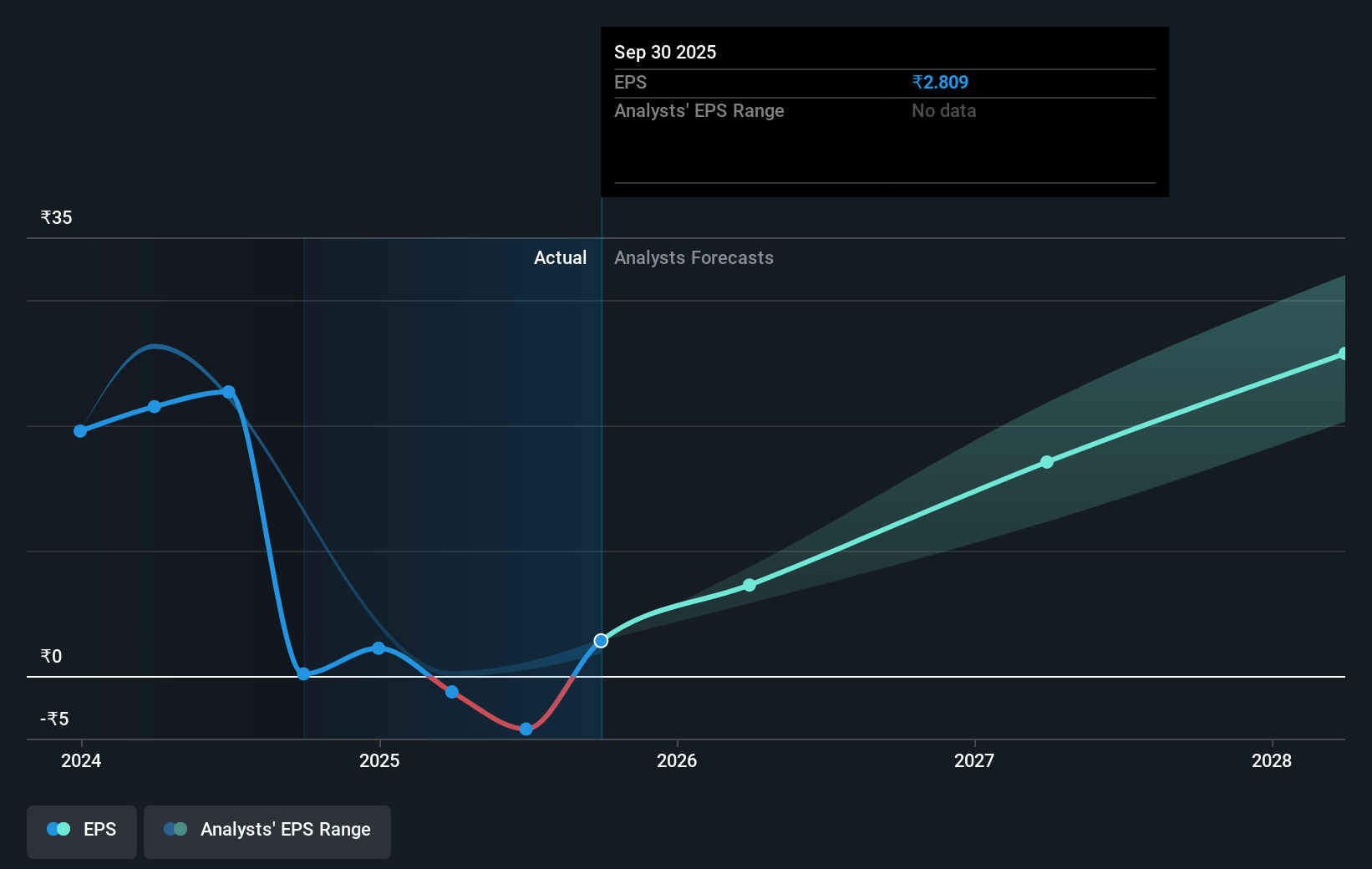- India
- /
- Consumer Finance
- /
- NSEI:POONAWALLA
Poonawalla Fincorp (NSE:POONAWALLA) sheds 3.8% this week, as yearly returns fall more in line with earnings growth
It might be of some concern to shareholders to see the Poonawalla Fincorp Limited (NSE:POONAWALLA) share price down 12% in the last month. But that doesn't undermine the fantastic longer term performance (measured over five years). To be precise, the stock price is 876% higher than it was five years ago, a wonderful performance by any measure. So it might be that some shareholders are taking profits after good performance. Of course what matters most is whether the business can improve itself sustainably, thus justifying a higher price. Anyone who held for that rewarding ride would probably be keen to talk about it.
While the stock has fallen 3.8% this week, it's worth focusing on the longer term and seeing if the stocks historical returns have been driven by the underlying fundamentals.
There is no denying that markets are sometimes efficient, but prices do not always reflect underlying business performance. One way to examine how market sentiment has changed over time is to look at the interaction between a company's share price and its earnings per share (EPS).
Over half a decade, Poonawalla Fincorp managed to grow its earnings per share at 3.0% a year. This EPS growth is slower than the share price growth of 58% per year, over the same period. So it's fair to assume the market has a higher opinion of the business than it did five years ago. That's not necessarily surprising considering the five-year track record of earnings growth. This favorable sentiment is reflected in its (fairly optimistic) P/E ratio of 171.80.
You can see how EPS has changed over time in the image below (click on the chart to see the exact values).

We know that Poonawalla Fincorp has improved its bottom line lately, but is it going to grow revenue? If you're interested, you could check this free report showing consensus revenue forecasts.
What About The Total Shareholder Return (TSR)?
We've already covered Poonawalla Fincorp's share price action, but we should also mention its total shareholder return (TSR). The TSR attempts to capture the value of dividends (as if they were reinvested) as well as any spin-offs or discounted capital raisings offered to shareholders. Its history of dividend payouts mean that Poonawalla Fincorp's TSR of 887% over the last 5 years is better than the share price return.
A Different Perspective
It's nice to see that Poonawalla Fincorp shareholders have received a total shareholder return of 27% over the last year. Having said that, the five-year TSR of 58% a year, is even better. The pessimistic view would be that be that the stock has its best days behind it, but on the other hand the price might simply be moderating while the business itself continues to execute. It's always interesting to track share price performance over the longer term. But to understand Poonawalla Fincorp better, we need to consider many other factors. Consider for instance, the ever-present spectre of investment risk. We've identified 2 warning signs with Poonawalla Fincorp , and understanding them should be part of your investment process.
If you are like me, then you will not want to miss this free list of undervalued small caps that insiders are buying.
Please note, the market returns quoted in this article reflect the market weighted average returns of stocks that currently trade on Indian exchanges.
New: Manage All Your Stock Portfolios in One Place
We've created the ultimate portfolio companion for stock investors, and it's free.
• Connect an unlimited number of Portfolios and see your total in one currency
• Be alerted to new Warning Signs or Risks via email or mobile
• Track the Fair Value of your stocks
Have feedback on this article? Concerned about the content? Get in touch with us directly. Alternatively, email editorial-team (at) simplywallst.com.
This article by Simply Wall St is general in nature. We provide commentary based on historical data and analyst forecasts only using an unbiased methodology and our articles are not intended to be financial advice. It does not constitute a recommendation to buy or sell any stock, and does not take account of your objectives, or your financial situation. We aim to bring you long-term focused analysis driven by fundamental data. Note that our analysis may not factor in the latest price-sensitive company announcements or qualitative material. Simply Wall St has no position in any stocks mentioned.
About NSEI:POONAWALLA
Poonawalla Fincorp
A non-banking finance company, provides consumer and MSME financing services in India.
High growth potential with proven track record.
Similar Companies
Market Insights
Community Narratives


